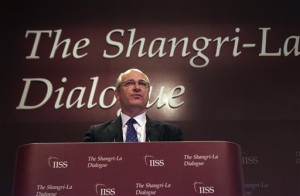Cyber strikes a ‘civilized’ option: Britain
Singapore – Pre-emptive cyber strikes against perceived national security threats are a “civilized option” to neutralize potential attacks, Britain’s armed forces minister said Sunday.
Nick Harvey made the comment at the Shangri-La Dialogue security summit in Singapore in relation to reports that the US had launched cyber attacks to cripple Iran’s nuclear program.
“I don’t know about the specifics and I’m not going to comment on them,” Harvey said at the two-day meeting ending Sunday.
“But what I would say is that if a government has arrived at the conclusion that it needs, out of its sense of national interest or national security, to deliver an effect against an adversary… arguably this is quite a civilized option.”
A Russian computer firm said last week it had discovered a new computer virus with unprecedented destructive potential that chiefly targets Iran and could be used as a cyberweapon by the West and Israel.
Kaspersky Lab said its experts discovered the virus – known as Flame – during an investigation prompted by the International Telecommunication Union.
Iran appears to have been the main target of the attack and the announcement came just a month after the Islamic Republic said it halted the spread of a data-deleting virus targeting computer servers in its oil sector.
The New York Times reported Friday that Obama accelerated cyberattacks on Iran’s nuclear program using the Stuxnet virus, and expanded the assault even after the virus accidentally made its way onto the Internet in 2010.
Britain’s stance was supported by Canadian Defence Minister Peter Gordon MacKay, who likened a pre-emptive cyber strike to an “insurance policy”, warning of the need to be prepared.
Malaysian Defense Minister Ahmad Zahid Hamidi said a cyber arms race was already under way.
He urged members of the Association of Southeast Asian Nations (ASEAN) to pool their resources to tackle increasingly complex cyber attacks which could paralyse a country’s IT systems.
“What remains disturbing is that cyber warfare need not to be waged by state-run organizations but could be conducted by non-state entities or even individuals with intent to cause disruptions to the affairs of the state,” he added.
